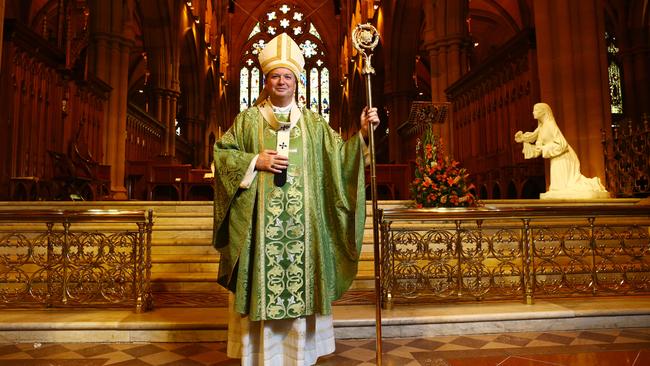Reforming universities to boost research puts ACU well in front
There are some very challenging sports in this world: alligator wrestling, wolverine dancing and prime ministering all come to mind.
But reforming universities is in a class of its own. The most reasonable improvement inevitably brings predictions of the end of civilisation, self-interested media leaks and anthrax-infected envelopes to the vice-chancellor.
We are now experiencing one of these uprisings of the profoundly privileged at the Australian Catholic University. Our crime has been to become a real research university.
That’s what universities do, apart from teaching: they research. A university without research is like a jet without an engine.
Problem is, ancient industrial models in most Australian universities let people be paid for research whether they do it or not.
Standard industry practice is that academics receive an allocation of 40 per cent of time — and salary — for research. If their last actual publication was co-written with Moses, so be it.
But not at ACU, not now. Academics get research workload on the basis of demonstrated performance. Nothing will come of nothing. This is no threat to real researchers. It is no threat to our great teachers, who can be promoted to full professor on teaching distinction alone.
But for the bloke eking out credibility on one article published so long ago it was written in cuneiform, it’s curtains. The shrieks can be heard not only locally, but in the outer circles of Hell.
What makes it so much worse for these ancient mariners is that their pointless research time has been reallocated to genuine performers. And there are so many of them. Bright, young, early-career researchers. Stars attracted from other universities. Superstars attracted from around the globe.
What to do? Well, best to claim that all this additional talent is useless and unproductive, and better still that it is in some way rorting the system to boost “scores”. It isn’t true, but at least you’ll feel better.
This comprehensively explains recent attacks on ACU for “gaming” the research system by making fractional appointments of genuine international research giants. Jealousy mates with chagrin and births venom.
What ACU actually has been doing is identifying truly great researchers around the world in areas of its own research focus. These researchers like what they see at ACU and come on board, usually as 40 per cent appointments.
These are not paper appointments designed to inflate research scores. They are the cutting edge of the globalised research Australia has to master if it is to stay in the game. In the real modern world, your key research partner does not have to be permanently in the office next door.
These international research fellows work hard and brilliantly. In the first place, they are chosen ruthlessly for perfect fit with the key programs at ACU, and close collaboration with homegrown researchers.
They actively lead and collaborate in the most important research programs of the university. They work tirelessly on research grant applications with other ACU researchers.
They take part in extended research collaborations, conferences and structured research conversations. Many of these happen on ACU’s Rome campus. That’s what you do, when you are a uniquely international research university
Critically, these appointments mean that Australian researchers are constantly being mentored by the very best in the world, who otherwise would have no connection with Australia.
And most importantly of all, they are part of permanent global research networks that spread around the world, but which are grounded in and directed by an Australian university. This is not gaming, it is the future for Australian research.
The universities that choose — that strongly desire — to be parts of these networks are household names in the research world: Leuven, Notre Dame, City University New York, Humboldt, Durham.
Sometimes, the programs work almost too well for our partner institutions. Their best and brightest choose not just to collaborate deeply with ACU, they decide to permanently cohabit.
So Bryan Turner from the City University New York, the world’s most distinguished sociologist of religion, is now full-time at ACU. James Sallis, the great public health authority, has moved from the University of San Diego to ACU. They will have plenty to talk about with ACU’s own Herb Marsh, an educational psychologist of almost intergalactic standing, with one of the highest citation rates across any discipline in the entire world.
The outcome of all this is not artificially inflated status but the sort of genuine research distinction purveyors of academic envy can only dream about.
In 2015 ACU made the biggest jump in Australian research rankings ever recorded. It received the highest possible rankings in all of public health, psychology, nursing, and human movement and sports science. It ranked equal first in Australia in religious studies, including theology.
The very best thing about these astonishing “scores” — as real as a grand final scoreboard — is they were achieved by an Australian university that has attracted not only outstanding local talent, but absolute world-class researchers.
Welcome to the research of the future.
Greg Craven is vice-chancellor of the Australian Catholic University



To join the conversation, please log in. Don't have an account? Register
Join the conversation, you are commenting as Logout